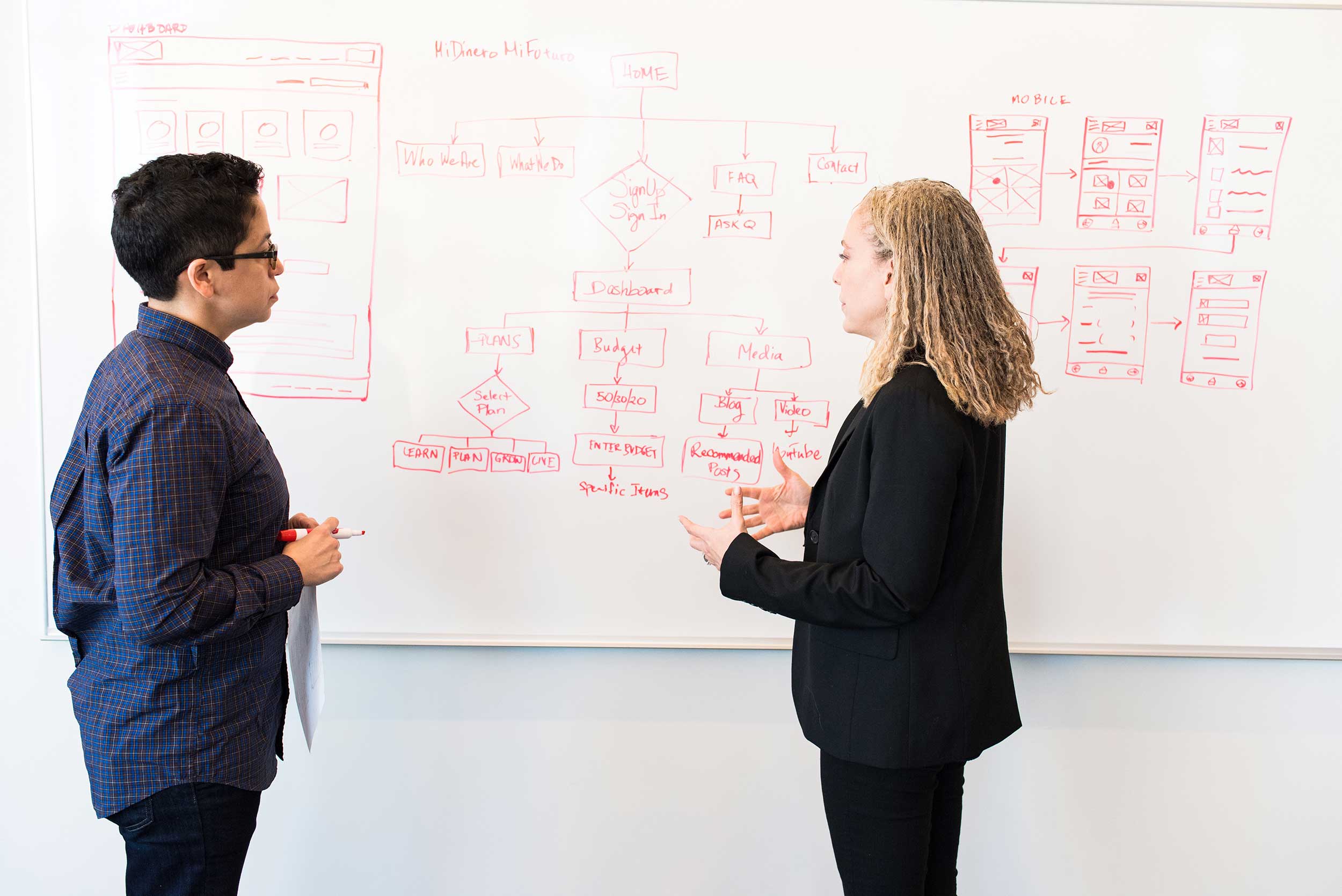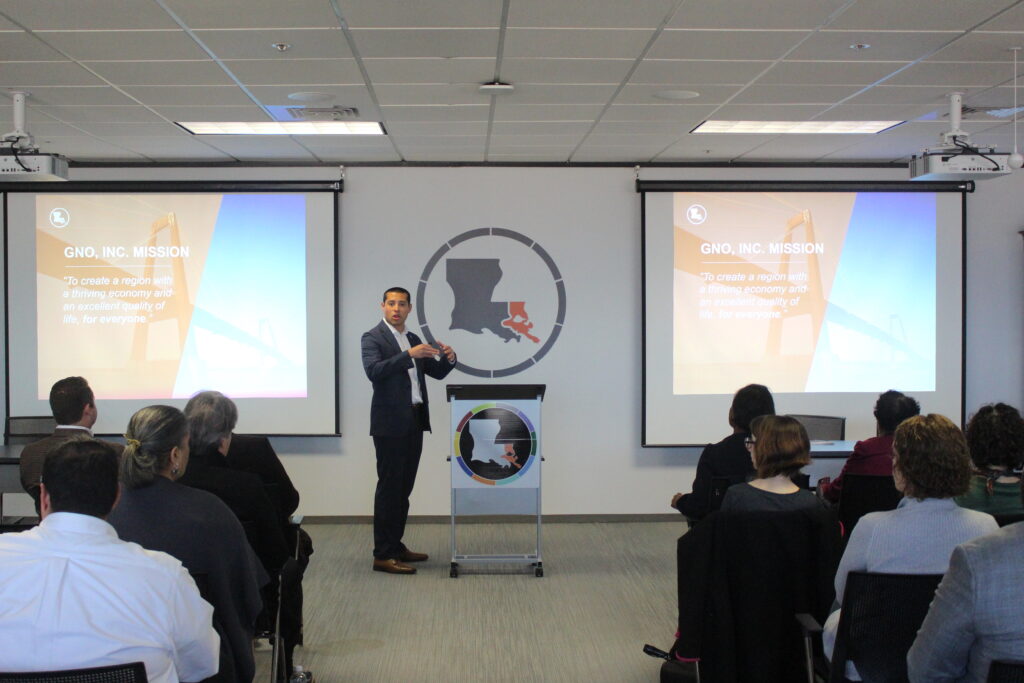
Preparing Young People for Tomorrow’s World of Work Today
In my lifetime, the United States has experienced the largest shift in its economy since the Industrial Revolution: our workforce transformed from one dominated by manufacturing, discrete skill requirements, and an expectation of a long tenure with one company, to one that is constantly evolving, expects transferable skills, and anticipates job changes. For students going through high school today, these shifts will likely be even more stark. The growth of automation and artificial intelligence will continue to reorient our economy as millions navigate the job market.
There are plenty of reasons to be hopeful: there are foundational skills and experiences that prepare our young people to enter and excel in this new landscape. As the nature of work transforms, there are abundant opportunities for the next generation to achieve economic prosperity. According to the Georgetown Center on Education and the Workforce, these “good jobs” largely require more than a high school diploma – including certificates, credentials, associate’s, bachelor’s, and other professional degrees. These are the jobs that can ensure that an individual can thrive and prosper. Knowing this opportunity, it is up to all of us to prepare our young people to take advantage of them.
In communities across the country, there is a growing movement that we need to better prepare our youth for success after high school. For example, in New Orleans, a collaborative of education, business, and civic leaders have united behind a collective vision of young people thriving in the future of work. Together, this collaborative is committed to providing our young people with a more robust high school experience through an initiative called YouthForce NOLA. I am proud to have co-founded and to serve as the President of YouthForce NOLA.
Our purpose is to ensure that our young people are prepared for the world of tomorrow. We want to ensure that every student who graduates from an Orleans Parish Public School is the most sought after talent for hiring and advancement in the region’s high-wage, fast-growing industries. But how do we build that future today?
In addition to the academic skills that tend to dominate K-12 school performance conversations, the YouthForce collaborative has honed in on three critical components needed to succeed in the growing fields of tomorrow: technical skills, soft skills and meaningful work experience. These factors are the keys to creating a more holistic graduate profile. All of them together are critical to the success of students everywhere. Here’s why:
Soft Skills
Based on a meta-analysis of top research and validation with families and other stakeholders, foundational to all skill-building and experiential learning are soft skills (a.k.a., power skills, essential skills, and foundational skills. YouthForce NOLA has adopted “soft skills” and “power skills” as our primary terms as they resonate most with the largest number of stakeholder partners, including employers and educators/youth developers). Students need soft skills to access, develop, and navigate other skill-building and experiential learning. Soft skills are the skills essential to being prepared for the future of work. Not only do they provide the foundations for success when learning new content in a classroom or entering a new workplace, they are transferable, adaptable, and promote constant improvement.
Employers routinely cite a lack of soft skills as a reason for an employee’s inability to succeed. According to a 2014 report from The Monitor Institute, 70 percent of employers stated that the high school graduates they employ had deficits in professionalism and critical thinking/problem solving and 50 percent stated this same population lacked sufficient oral communication skills. This all becomes especially timely in the new age of automation and economic change within which young people are coming of age. Skills such as collaboration, problem-solving, planning for success, communication, social awareness, and personal mindset are needed for success in college, career, and life. It’s up to all of us to help our young people develop them in a substantive, clear way.
To truly foster soft skills, we need to be transparent and make soft skills instruction and development explicit. Students need to both be able to develop these skills as well as recognize the value and power that these skills give them. Joining dozens of partners nationwide, the YouthForce collaborative utilizes the MHA Labs Soft Skills Building Blocks Framework: a common set of easy-to-understand 21st-century skills that give instructors and their students the foundations to power their own growth and development. With the variety of tools that MHA Labs provides, students have been able to grow in ways that will allow them to thrive in the face of whatever the future of work brings.
Technical skills
Simply put, students need a new set of skills to take advantage of emerging economic opportunities. These skills must be valued and informed by industry, so students can enter the world of work with tangible skills that companies need. To represent the attainment of technical skills, students must be able to earn industry-recognized (aka industry-based) credentials. Of course, these credentials must be more than just pieces of paper.
Students must actually be earning credentials that measure technical skill, and consequently, communities need to be deliberate in the technical skill pathways they build. In New Orleans, we have focused in on future wages, local demand by business, and stackability & transferability to different organizations. While every community is different, valuable technical skill programs can only be built when informed by industry. Partnerships, like the ones we have with NOLABA and GNO, Inc. and the ones other technical skill advocates like Denver CareerConnect have fostered, are key to ensuring students are gaining skills that connect them to growing employment opportunities.
Meaningful Work Experience
The ultimate goal of all of this skill development is to connect young people to economic opportunity and lifelong prosperity. Yet, many youth nationwide have trouble bridging the divide between high school and the next opportunity. Consequently, despite being bright individuals, many of our young people are being left behind. Meaningful work experiences during their high school years can help change that.
Once students have started building some of the skills to be successful in the 21st century, we believe that they need to continue to apply and develop them in the context of an actual workplace. Not only do we believe that individuals learn best by doing, but also, we know that no employer wants to be someone’s first job. Meaningful first work experience in high school enables students to really learn and internalize the technical and soft skills listed above through real-world application. Further, these meaningful work experiences directly connect students to professionals – folks who can be future (full-time) employers, serve as references, and generally help young people expand their professional networks.
Students who apply the soft, technical, and academic skills they learn in the classroom to the workplace are able to better grow those skills in the long term. When students have the chance to take concepts learned at school to the real world, they are then able to iterate upon their ideas and add contextual nuance to their knowledge. Additionally, students who apply their technical knowledge to real-world situations have been shown to have marked improvements in their academic courses, too. We believe that meaningful work experience is key to holistically preparing students for life after high school.
We believe that communities should strive to ensure their internship, apprenticeship and other work experiences are meaningful. For example, in New Orleans, we have designed our program for high school seniors, YouthForce Internships, to include 60 hours of career readiness training (in soft skills, business etiquette, and workplace rights and responsibilities) and 90 hours of work-based placement. Throughout the full 150 hours, students receive ongoing feedback and coaching support to help them iterate, problem-solve, and continuously grow. This sustained, supportive experience is what we consider meaningful; one that enhances skills, strengthens student agency and builds connections and networks.
And, we’re seeing the impact of this emphasis on meaningful work experience: 84% of intern supervisors find the work-readiness of their interns to be similar or favorable to that of any other entry-level employee. And, approximately 95% of intern participants state that the training prepared them for their placement. These learning and growth outcomes are the result of our community’s collective belief in our young people’s talents, as well as a significant effort to ensure these experiences are meaningful and positive development.
We need to do more
The world of work is evolving, and communities need to change the way we prepare young people as a result. All of us need to think critically about creating a more holistic student experience that opens as many opportunities as possible. By integrating soft skills, technical skills and meaningful work experiences in with rich academic preparation, we can ensure students are ready for whatever the future of work may hold.
To read the full article click here.


